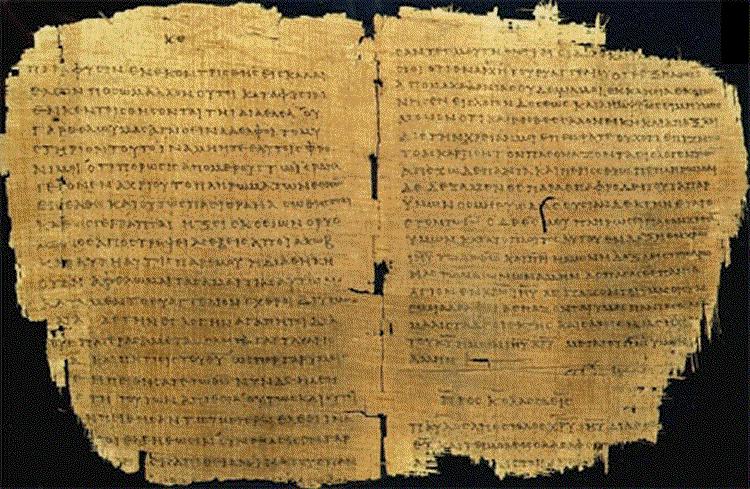To be a confessing Christian is to be one who longs to act, think and be more like Jesus, and one who, along that journey of transformation, admits deep need for God’s power, grace and body. Lent is a time to re-admit this need.
In the early years of The Way of Jesus, persecution was the norm. One of the readings from this Sunday’s lectionary comes from an epistle Paul wrote from prison (Philippians 3:4b-14). He was in prison for being a Christian. There have been, and still are, countless “red martyrs”–men and women who bleed while they bear witness to an unbelieving world that ultimate hope is found in Jesus and his Kingdom of forgiveness and love and justice. But the majority of this blog’s readers don’t know what this kind of suffering is like. Sure, we understand, at least in some sense, the world’s inevitable suffering–broken relationship, death come too soon, loss of a job, and so on. But what about when death comes too soon because of the name of the one we call Lord? What about losing a job, e.g., an academic position, or even campus access for his name? These things do happen, but they’ve never happened to me, and they haven’t happened to most of you. So how can we possibly understand this sacrifice?
In 313 AD the Roman Empire passed the “Edict of Milan” and made the persecution of Christians illegal for the first time since their appearance in the 1st century (see my footnote below for more on this). After 313, the men and women who had lived under the former oppression, including the possibility of blood martyrdom, began to notice that those who didn’t see persecution didn’t develop Christian virtue like their predecessors had. They also noticed that those who’d left successful lives in the world, in order to pursue lives of self-sacrificial Jesus-following, did develop Christian virtue. Based on this self-sacrificial martyrdom, a name was given. “White martyrs,” they were called.
Paul’s epistle to the Philippians is one of encouragement for people we might call white martyrs. It appears that, at the time Paul wrote the epistle, the Church in Philippi was basically healthy (compared to those in Corinth and Galatia at least) and wasn’t enduring much persecution. This is evidenced in that he tells them not to worry about him, that he has the joy of the Lord even though he’s in prison. Apparently he thought that this reassurance was necessary due to their lack of experience with persecution. If my reading is correct, we have much in common with the Philippians. Neither of us understands what it’s like to go to prison because of the Gospel, and we probably go to a Church that is at least reasonably healthy (i.e., nobody is hosting orgies and listing them on the bulletin board, and nobody is telling us we must be circumcised to be in God’s family). But we, like the Philippians, need some encouragement in our development as Christians.
If anyone else thinks he has reason for confidence in the flesh, I have more: circumcised on the eighth day, of the people of Israel, of the tribe of Benjamin, a Hebrew of Hebrews; as to the law, a Pharisee; as to zeal, a persecutor of the church; as to righteousness under the law, blameless. But whatever gain I had, I counted as loss for the sake of Christ. Indeed, I count everything as loss because of the surpassing worth of knowing Christ Jesus my Lord. For his sake I have suffered the loss of all things and count them as rubbish, in order that I may gain Christ and be found in him, not having a righteousness of my own that comes from the law, but that which comes through faith in Christ, the righteousness from God that depends on faith—that I may know him and the power of his resurrection, and may share his sufferings, becoming like him in his death, that by any means possible I may attain the resurrection from the dead.
Not that I have already obtained this or am already perfect, but I press on to make it my own, because Christ Jesus has made me his own. Brothers, I do not consider that I have made it my own. But one thing I do: forgetting what lies behind and straining forward to what lies ahead, I press on toward the goal for the prize of the upward call of God in Christ Jesus.
(Philippians 3:4-14 ESV)
When we go without external trials it’s easy to slack in our efforts toward developing virtue, and it becomes easy to find our identity in other things, including self-righteousness and worldly success. It is to this that Paul is speaking in this Sunday’s passage.
During the season of Lent we become intentional martyrs. We deny ourselves so that we can better focus on our King Jesus and catch a clearer view of Easter. We enter into the story. We allow the Spirit of the Living God greater access to our thoughts, feelings and actions.
And we are changed. By the power, grace and family of God, we are developing the virtue of the red martyrs.
________________________________________________
In a recent article published by the Chronicle of Higher Education, Candida Moss, a young New Testament Professor at Notre Dame, said that systematic persecution of the early Church is a mythologized exaggeration (see her article here). I would agree to a certain extent. But, it seems to me, much like the Early Christians’ over-exaggeration of martyrdom, Candida Moss has under-exaggerated it. Why she’s done so I’m not prepared to say, but her forceful rhetoric leads me to believe that there’s more going on than disinterested history. If you’re curious about this debate, take a look at the writings of Tertullian, Pliny’s Letters to Trajan, The Martyrdom of Polycarp, Tacitus, and Seutonius. Each one of these historians, both Christian and Roman, describes persecution of Christians. Indeed, some of the ordeal has been drummed up and hagiographies have been written about the lives of many of the central martyrs. But the threat was very real. And still is for many.

My wife and I live in South Hamilton, MA where I’m pursuing an MDiv at Gordon Conwell Theological Seminary and she’s serving as Intervarsity staff on campus at Northeastern University. I study Theology and History and Philosophy “as ends in themselves” (in the Aristotelian sense), as well as for a further, more complete end: a deeper understanding of my King and, thus, a more dynamic relationship with him.
I graduated this past spring (2013) with BA in Religious Studies (Hinduism and Buddhism concentration) and a minor in Classical Greek (Homeric/Ionic/Attic/Doric/Koine, appx. 8th BCE – 5th CE). The study of the ancient world in its original context and language fascinates me, especially that of the Early Christians, Ancient Jews and Hellenes.
For more of my writing, see my blog @ www.philotheology.com


Thanks for the article!
The first thing I thought of when I read the title of this blog entry was not the distinction between “red” and “white” martyrdom… but the persecution narrative of modern American Christians (often racially white, and very infrequently martyred in any sense) – my younger self included. As you noted, we are not really at great risk of red martyrdom; but that doesn’t stop us from identifying ourselves with the martyrs of the early Church… in ways that I think are sometimes good, but sometimes terribly unhelpful.
What worries me – and perhaps what worries Moss? – is the response of some Christians to the idea of persecution: namely, that we should develop political and social policies to avoid the risk of any sort of martyrdom at all costs. The ethic is not one of patient self-sacrifice, but of aggressive self-defense. My Sunday school class, for instance – which I love dearly – would like to say that the removal of nativity scenes from a town square is the first step in a persecution of modern Christians that differs only in degree, not in kind, from that suffered by the early Church – or from the sufferings of those Christians who are currently at risk of violence around the world. Their first (understandable and human) response is alarm, outrage, and resistance – and not through patient and courageous civil disobedience (rejoicing in our little ‘sufferings’!), but through an attempt to overturn such rulings through political force, and stop any slide towards red martyrdom in our own country. It is an attempt to claim the power of the state which would prevent us from suffering, rather than the power of God which preserves us in and rescues us from it.
And all of that makes me wonder to what extent we should see white martyrdom – in its denial of self-righteousness and its abdication of worldly power, privilege, and success – as something we are called to practice not just as individuals, but as the body of Christ.
I appreciate this comment. You raise an excellent point about fear and self-defense. I wonder what it would look like if, instead of only getting defensive politically (which I do think needs to be part of the process), Christians followed the example of Peter and Paul in practicing a bit of civil disobedience–What if we put up the Nativity Scene anyway? What would happen if people started getting arrested for dressing like Joseph and Mary on a street corner?
I agree with your main concern. It is the underlying issue–fear–which makes the outrage of today’s Church so harmful.
Christians in the west and especially the US and Canada are not persecuted at all. There are parts of the world where martyrdom is very real. More Christians were martyred in the last century than in the first. I think of those people when I hear Christians lament, “taking Christ out of Christmas”.
I look forward to reading more from you.